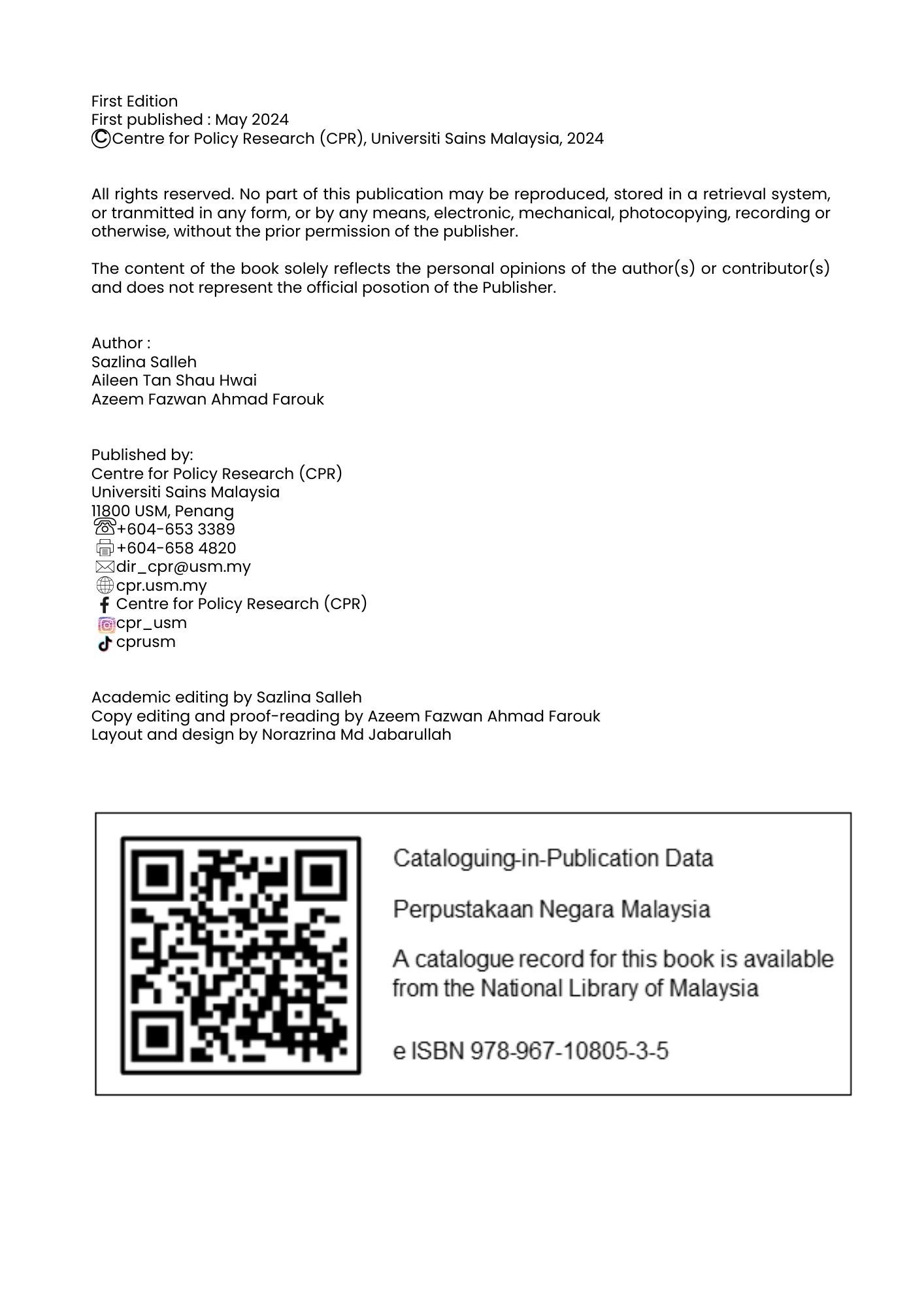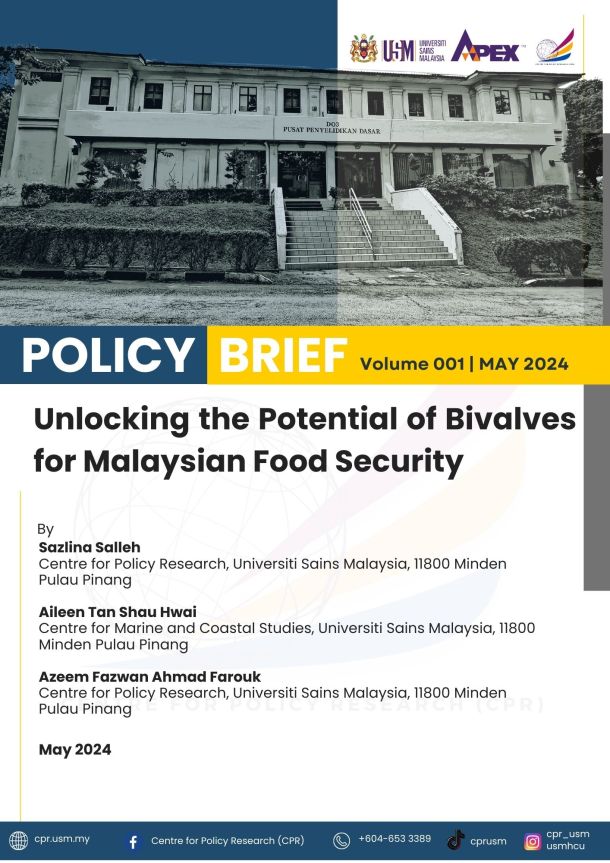e ISBN : 978-967-10805-3-5
Unlocking the Potential of Bivalves for Malaysian Food Security
Sazlina Salleh, Aileen Tan Shau Hwai, Azeem Fazwan Ahmad Farouk
Introduction
Nutritional and Environmental Significance of Bivalves
Malaysia faces challenges in ensuring long-term food security due to rising populations, depleting fish stocks, and increasing protein demand. Bivalve aquaculture offers a promising solution, as these filter feeders can contribute to sustainable protein production (Boyd et al, 2022). One potential solution is to invest in sustainable aquaculture practices to increase seafood production. This can help alleviate pressure on wild fish populations while also providing a reliable source of protein for the growing population. Bivalve culture can support food security by providing nutritious food rich in essential nutrients like protein and omega-3 fatty acids necessary for human health and well-being (Yaghubi, 2021). Increasing bivalve production through aquaculture can contribute to meeting the growing demand for food and improving food security worldwide. Bivalve aquaculture has a significantly lower environmental footprint than other protein sources (Box 1). They don't require land, freshwater, or feed inputs and can even filter and improve water quality (Suplicy, 2020). Bivalves efficiently convert organic matter into high-quality protein, requiring minimal resources and contributing minimal greenhouse gas emissions compared to other protein sources (Willer & Aldridge, 2020). The bivalve industry in Malaysia includes green mussels, oysters, cockles and clams.
-
This policy brief aims to highlight the potential of the bivalve industry contribution to Malaysia's food security goals. Bivalves offer a sustainable and nutritious seafood source. To fully exploit their benefits, the report recommends focusing on four key areas:
1. Empowering Local Communities:
- Increase access to affordable bivalves for low-income populations through subsidised pricing and community-based distribution.
- Encourage and support community-driven bivalve cultivation projects to improve food security, nutrition, and local economies.
2. Developing Smart Bivalve Aquaculture:
- Establish a framework for integrating innovative farming technologies within the National Agrofood Policy.
- Implement demonstration projects showcasing the benefits of technology adoption in Aquaculture Industrial Zones.
3. Strengthening Evidence-Based Fisheries Management:
- Implemen science-based management strategies for bivalve populations, ensuring sustainable long-term productivity.
- Enforce stricter regulations and prioritise habitat protection for healthy ecosystems.
4. Advancing Bivalve Aquaculture through Advanced Research & Innovation:
- Invest in research initiatives to improve bivalve cultivation practices, including breeding techniques, disease management, and habitat enhancement.
- Develop superior broodstock with enhanced reproductive capabilities and disease resistance for different bivalve species.
-
This Policy Brief was based on research funded by Bivalve Aquaculture Research Excellence Consortium Grant No. 203/PPANTAI/6783002 from the Ministry of Higher Education, Malaysia.
-
Boyd, C. E., McNevin, A. A., & Davis, R. P. (2022). The contribution of fisheries and aquaculture to the global protein supply. Food security, 14(3), 805-827.
Department of Fisheries in http://www.dof.gov.my/en/fishery-statistics.Willer, D. F., & Aldridge, D. C. (2020). Sustainable bivalve farming can deliver food security in the tropics. Nature Food, 1(7), 384-388.
MOA (2011). National Agro-Food Policy, 2011-2020. Putrajaya: Ministry of Agriculture and Agro- Based Industry.
Suplicy, F. M. (2020). A review of the multiple benefits of mussel farming. Reviews in Aquaculture, 12(1), 204-223.
Yaghubi, E., Carboni, S., Snipe, R. M., Shaw, C. S., Fyfe, J. J., Smith, C. M., ... & Hamilton, D. L.
Witus, I. W., & Vun, L. W. (2016). Aquaculture in Malaysia: a short review on current policy and legislation. Transactions on Science and Technology, 3(1-2), 150-154.
(2021). Farmed mussels: A nutritive protein source, rich in omega-3 fatty acids, with a low environmental footprint. Nutrients, 13(4), 1124.
-

Episode

-
By
Sazlina Salleh, Aileen Tan Shau Hwai, Azeem Fazwan Ahmad Farouk
-
Email
This email address is being protected from spambots. You need JavaScript enabled to view it. -
Volume
001
-
First Published
May 2024
-
PDF Link